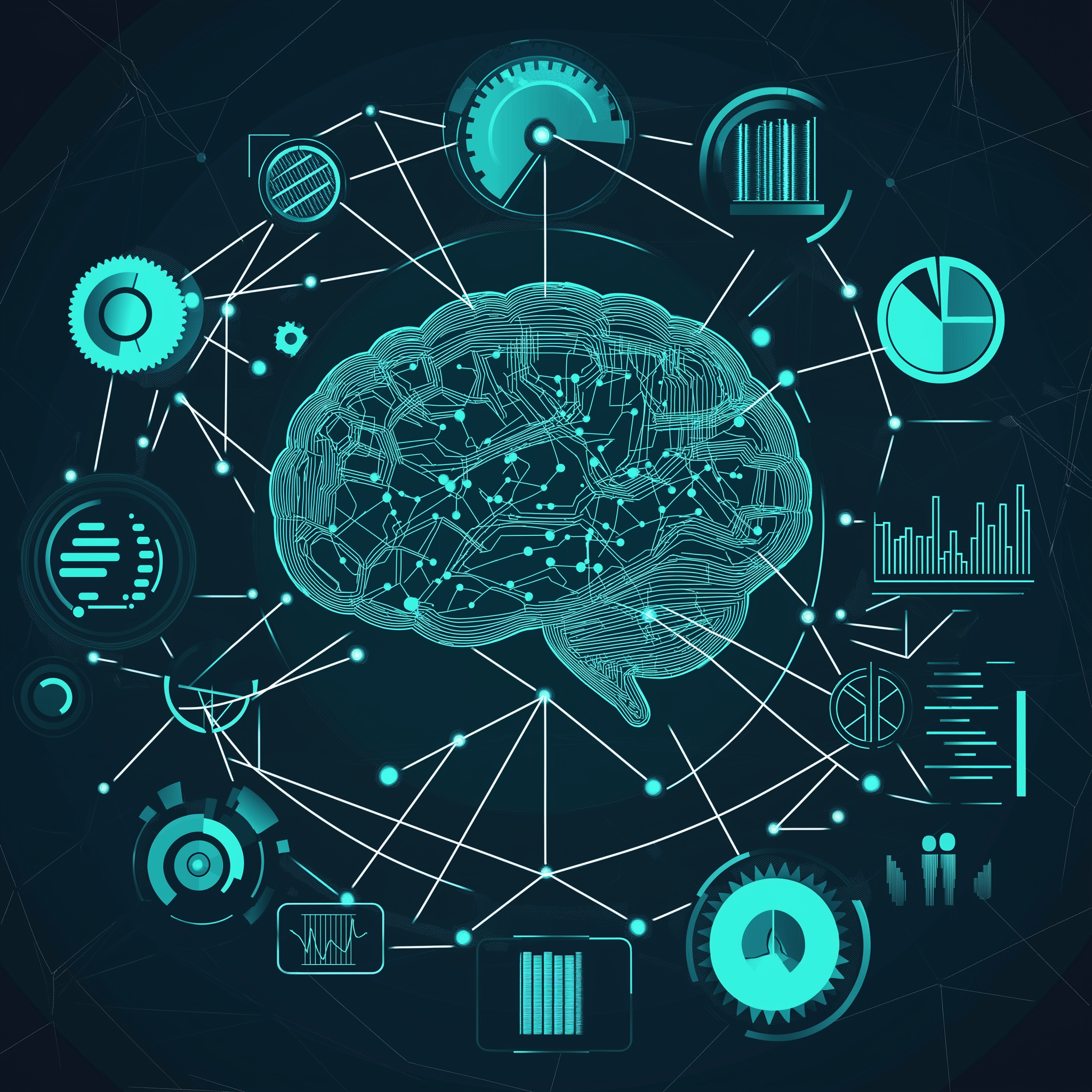AI in Business Transformation: Reshaping Operations, Decisions, and Competitive Advantage
In todays, fast paced world businesses operate in a landscape marked by rapid digital innovation, heightened customer expectations, and fierce competition. Within this context, AI is increasingly becoming a cornerstone of strategic business transformation, driving efficiency, enabling smarter decision-making, and fostering competitive differentiation. But what does this really mean in practice and how can leaders leverage AI effectively?
In this article we’ll explore how AI is reshaping business operations and redefining decision-making across industries.
Beyond Automation: AI Redefining Operational Efficiency
Automation as a capability and area of innovation isn’t new in itself, it’s an area than many organisations have been exploring for years. AI however brings a layer of intelligence that traditional automation lacks. Organisations are now embracing Intelligent Automation, which integrates Robotic Process Automation (RPA), machine learning (ML), and natural language processing (NLP), to handle tasks previously reliant on human input.
In the finance sector for example, banks are deploying AI-driven systems to streamline compliance checks and fraud detection. Rather than manually reviewing individual transactions, AI can analyse millions of transactions in real-time, identifying subtle patterns and anomalies impossible for humans to consistently detect. The result is dramatic efficiency gains, significantly reduced error rates, and substantial cost savings.
Similarly, retail companies are utilising AI-driven demand forecasting to optimise inventory management and supply chain logistics. By accurately predicting demand fluctuations, businesses can avoid excess stock, reduce waste, and ensure availability of popular products, turning operational efficiency into a distinct competitive advantage.
AI-driven operational excellence isn't just about efficiency; it's about achieving agility, precision, and scalability.
Enhanced Decision-Making through AI Insights
Decision-making has traditionally relied heavily on human intuition combined with data analysis. AI fundamentally shifts this paradigm, empowering organisations with deeper analytical capabilities that are far beyond traditional BI tools.
When it comes to marketing analytics, AI algorithms don’t merely summarise past sales figures. Instead, they integrate historical data with predictive models and external factors such as market trends or economic indicators to dynamically adjust strategies. Companies leveraging AI for customer segmentation can hyper-personalise marketing campaigns, allowing them to improve customer acquisition, retention, and lifetime value significantly.
In the healthcare sector, AI-driven diagnostic tools provide clinicians with predictive insights, facilitating early diagnosis and proactive treatments. For example, AI systems analysing patient records, medical imaging, and genetic data can predict potential health risks, allowing clinicians to intervene earlier and improve patient outcomes.
Informed decision-making, amplified by AI insights, translates into higher profitability, improved outcomes, and long-term resilience.
Transforming Customer Experience with AI
In today’s world customers have become accustomed to and to a degree demand seamless, personalised, and immediate interactions. AI technologies such as conversational chatbots, voice recognition, and recommendation engines are reshaping how businesses engage customers.
Chatbots, driven by NLP and ML, provide instant support around the clock, resolving queries efficiently while still maintaining a personalised feel. Amazon, Netflix, and Spotify are leading examples of companies leveraging AI to deliver highly personalised user experiences, which help to build deeper and long-lasting customer loyalty and engagement.
AI-driven sentiment analysis further enhances this transformation. Businesses now harness vast quantities of customer feedback from social media, reviews, and support interactions, converting raw sentiment into actionable insights. Understanding customer sentiment at scale enables rapid response, tailored product offerings, and proactive brand management.
AI in customer experience is less about technology and more about understanding and serving human expectations.
Empowering Employees with AI Collaboration
Contrary to fears of AI replacing jobs, the prevailing trend is pointing more in the direction of AI instead enhancing human capabilities, creating collaborative, augmented roles. Professionals across domains, from legal and finance to creative industries, are increasing their adoption of AI tools to enhance productivity, creativity, and accuracy.
Software developers collaborate with AI-powered coding assistants, speeding up development and minimising errors with a number of GenAI tools able to effectively debug and correct their own code.
Sales teams leverage AI-driven CRM tools to better understand client needs, manage customer relationships proactively, and close deals faster.
In healthcare, clinicians are utilising AI diagnostic assistants as part of routine patient evaluations, freeing them to focus on complex cases and patient relationships.
The growing augmentation of the workforce doesn’t just increase productivity, it leads to greater job satisfaction as employees shift away from mundane tasks toward more strategic, engaging roles.
AI is not merely a tool, it's becoming a strategic collaborator in the workforce of tomorrow.
Navigating the Challenges of AI Adoption
While opportunities abound, AI-driven business transformation doesn’t come without challenges. Ethical considerations, data privacy concerns, and potential biases in AI decision-making systems demand a careful, thoughtful approach.
Organisations will need to implement robust frameworks around data governance, model explainability, and compliance. This isn’t just regulatory, it’s also reputational. AI solutions must be transparent and fair, especially in sensitive areas such as recruitment, credit scoring, and healthcare diagnostics. Organisations succeeding with AI adoption are taking these concerns seriously and embedding responsible AI principles and frameworks deeply into organisational culture and processes.
Futureproofing through AI Integration
Long-term success with AI will rely on careful integration into the strategic fabric of your organisation. Rather than approaching AI as discrete projects, forward-thinking businesses are embedding AI into their business models, strategy development, and organisational processes from the outset.
Leaders should foster a data-driven culture, invest in employee reskilling, and build cross-functional AI competency within their teams. AI should not be an isolated initiative owned solely by IT but should be integrated deeply into business units, enhancing strategic capabilities at every organisational level.
Final Thoughts: AI as a Strategic Imperative
The journey of AI in business transformation is not just technological, it’s strategic and deeply organisational. Success requires a holistic approach encompassing technology, people, processes, and governance.
By leveraging AI strategically, businesses can become more agile, make smarter decisions, create extraordinary customer experiences, and empower their workforce. In doing so, organisations aren't just keeping up, they’re proactively shaping their futures, achieving sustained competitive advantage in an ever-evolving marketplace.

